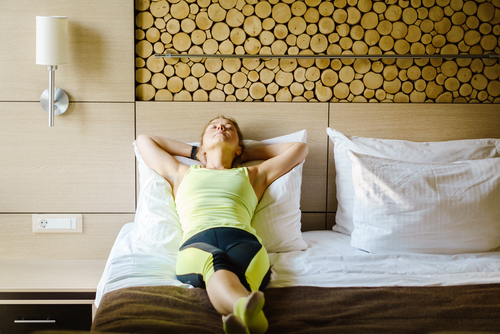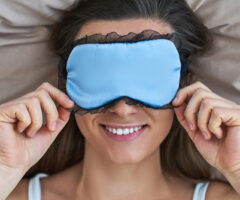How to Improve Sleep Quality
Quality sleep is essential for overall health and well-being. However, many people struggle with sleep issues that can affect their daily lives. In this blog, we will explore effective quality sleep strategies and sleep improvement techniques to help you achieve better sleep and wake up feeling refreshed.
Understanding Sleep Quality
What is Sleep Quality?
Sleep quality refers to how well you sleep and how rested you feel upon waking. It’s not just about the duration of sleep but also about its depth and continuity. Good sleep quality ensures that you get enough restorative sleep to support physical health, mental clarity, and emotional balance.
Factors Affecting Sleep Quality
Sleep Environment
Creating a conducive sleep environment involves factors like room temperature, noise levels, lighting, and comfort of your mattress and pillows.
Sleep Habits
Daily routines, bedtime rituals, and sleep hygiene practices significantly impact sleep quality.
Lifestyle Choices
Diet, exercise, caffeine intake, and screen time before bed can influence your ability to fall asleep and stay asleep.
Sleep Improvement Techniques
Establish a Consistent Sleep Schedule
Importance of Routine
Maintaining a regular sleep-wake schedule helps regulate your body’s internal clock, promoting better sleep quality over time.
Tips for Establishing a Routine
- Aim to go to bed and wake up at the same time every day, even on weekends.
- Avoid napping late in the day, as it can interfere with nighttime sleep.
Create a Relaxing Bedtime Routine
Wind Down Activities
Engage in calming activities before bed, such as reading, taking a warm bath, practicing relaxation techniques like deep breathing or meditation.
Limit Stimulants
Avoid stimulating activities like vigorous exercise, heavy meals, or caffeine consumption close to bedtime.
Optimize Your Sleep Environment
Bedroom Setup
Ensure your bedroom is cool, quiet, and dark to promote restful sleep. Use blackout curtains, earplugs, or white noise machines if necessary.
Comfortable Bedding
Invest in a comfortable mattress and pillows that support your sleeping position and preferences.
Practice Good Sleep Hygiene
Establishing Healthy Habits
Develop good sleep hygiene practices, such as:
- Limiting exposure to screens (phones, tablets, computers) before bed.
- Creating a relaxing bedtime ritual to signal to your body that it’s time to wind down.
Sleep and Exercise
Regular physical activity can improve sleep quality, but avoid intense workouts close to bedtime.
Monitor Your Diet and Hydration
Balanced Diet
Maintain a balanced diet with regular meal times. Avoid heavy or spicy meals late in the evening, which can cause discomfort and disrupt sleep.
Hydration
Stay hydrated throughout the day, but limit fluids close to bedtime to minimize nighttime trips to the bathroom.
Manage Stress and Anxiety
Stress Reduction Techniques
Practice stress management techniques, such as yoga, mindfulness, or journaling, to calm your mind before bed.
Cognitive Behavioral Therapy (CBT)
CBT techniques can help address underlying issues like insomnia or sleep anxiety, improving sleep quality in the long term.
Better Sleep Tips
Use Sleep Aids Wisely
Natural Supplements
Consider natural sleep aids like melatonin or valerian root under the guidance of a healthcare professional.
Prescription Medications
Consult with a doctor if you have persistent sleep difficulties that may require prescription sleep medications.
Seek Professional Help if Needed
Sleep Disorders
If you suspect you have a sleep disorder like sleep apnea or restless legs syndrome, seek evaluation and treatment from a sleep specialist.
Cognitive Behavioral Therapy for Insomnia (CBT-I)
CBT-I is a structured program designed to address chronic insomnia and improve sleep quality through behavioral and cognitive interventions.
Avoid Long-Term Reliance on Sleeping Pills
Risks and Side Effects
While medications can be effective for short-term sleep problems, they may have side effects and risks of dependency if used long-term.
Explore Alternative Therapies
Consider alternative therapies like acupuncture or aromatherapy as complementary approaches to improve sleep quality.
Implementing Quality Sleep Strategies
Track Your Sleep Patterns
Sleep Diary
Keep a sleep diary to track your sleep patterns, habits, and any factors that may affect your sleep quality.
Sleep Tracking Apps
Use sleep tracking apps or devices to monitor your sleep duration and quality, providing insights into your sleep patterns over time.
Evaluate and Adjust
Continuous Improvement
Evaluate the effectiveness of your sleep strategies regularly and make adjustments as needed to optimize your sleep quality.
Consultation with Experts
Seek guidance from healthcare professionals or sleep specialists for personalized recommendations tailored to your specific sleep needs.
Conclusion
Improving sleep quality is essential for overall health, productivity, and quality of life. Whether through establishing a consistent sleep schedule, practicing relaxation techniques, or optimizing your sleep environment, taking proactive steps to enhance your sleep quality can lead to more restful nights and productive days. Remember, achieving better sleep is a journey that involves adopting healthy sleep habits and addressing any underlying issues that may affect your rest.
Connecting The Dots Between Heart & Sleep
Dr. Atif Sohail is a board-certified cardiologist, of Heart & Sleep Clinics of America has been providing comprehensive and state-of-the-art services, including testing and treatment of cardiovascular disease and disorders, in Arlington and nearby cities for over 11 years. Dr. Sohail founded his own cardiology practice shortly after completing cardiology training abroad, as well as in the United States in 2001. After 5 years of practicing in Oklahoma, he relocated to Arlington, Texas where he remains. His services for the Arlington, Ft. Worth and Dallas communities include: a state-of-the-art outpatient clinic, in-patient management, emergency care, supervision and training of rotating students seeking a career in medicine. Give us a call today to learn more about what we can do for you.





 Understanding how sleep and heart health are interconnected is the first step in appreciating the significance of quality rest. Here’s how sleep affects your heart:
Understanding how sleep and heart health are interconnected is the first step in appreciating the significance of quality rest. Here’s how sleep affects your heart: To promote a healthy heart, it’s essential to focus on improving the quality of your sleep. Here are some valuable tips to help you get better rest:
To promote a healthy heart, it’s essential to focus on improving the quality of your sleep. Here are some valuable tips to help you get better rest: To improve your heart health, it’s important to monitor the quality of your sleep. Here are some tips for tracking your sleep patterns:
To improve your heart health, it’s important to monitor the quality of your sleep. Here are some tips for tracking your sleep patterns: In addition to improving your sleep, adopting heart-healthy habits can further reduce the risk of cardiovascular issues:
In addition to improving your sleep, adopting heart-healthy habits can further reduce the risk of cardiovascular issues: Heart Health and Sleep: The Vital Connection
Heart Health and Sleep: The Vital Connection The Relationship Between Your Heart and Your Sleep Schedule
The Relationship Between Your Heart and Your Sleep Schedule How Much Sleep Do I Need?
How Much Sleep Do I Need? Contact Us
Contact Us